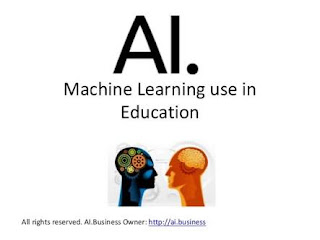When we think of artificial intelligence, there is a hardwired imagery of gigantic thinking machines working in sci-fi environment. This imagery often comes from the science fiction that
we have been watching or reading since childhood. However, deep diving suggests that artificial intelligence is an advanced form of algorithm that empowers machines to emulate human behaviour under real life situations. Today, there is no industry untouched by the ripples caused by artificial intelligence.
Education sets the foundation of human behaviour. Educational ecosystem is formed by knowledge base, teaching skills and experience, learning capability, and evolving teaching methods. Digital learning solutions equipped with artificial intelligence are making revolutionary changes to the way education is imparted in students with varied interests and capabilities. Here are some facets of education where we can feel the difference created by artificial intelligence:
Personalized learning
Every child is special. Therefore, getting all of them through the blackbox called education is not fair. Even if a teacher tries her best, time available in the classroom and school may not be enough to attend to the learning needs of every student. With artificial intelligence, we can apply high degree of personalized learning wherein each student learns at her pace and remediated specifically for their weakness and not a class average. Such a learning solution can evaluate the understanding of a student about each parts of curriculum and emphasize on those that are not already mastered. At the same time, it also supplements the effort of a human teacher.
Elevate the role of teachers as facilitators/motivators
Apart from the core teaching role, teachers often handle several mundane administrative responsibilities such as student attendance management. This reduces the efficiency and effectiveness of teaching. However, artificial intelligence allows automation of these tasks so that teachers can play their real role- to be the motivator and guiding force for learners. This could lead to a significant rise in quality of education and reshape the future.
Transparent and objective assessment
With due respect, rigid conventional assessment methods have ruined more young lives than nurtured. Simply put, if every student has different pace, acceptance, and aptitude towards the curriculum, it is unfair to assess them with the same yardstick. However, teachers often do so because of their inability to apply personalized assessment. Artificial assessment comes handy here. An assessment solution that runs a robust database and analytics engine at the core can analyse millions of complex patterns in the individual learning and assess the learner accordingly.
Creation of smart content
Digital content is rapidly finding acceptance in traditional classrooms. However, this also means that the content needs to be created, customize, and updated in real time. Given the variety of subjects and learning streams, this is a herculean task for humans. Artificial intelligence could be of great help here. With advanced artificial intelligence capabilities, we can digitize textbooks or create learning digital interfaces that are relevant to students of all age and grades.













0 Comments